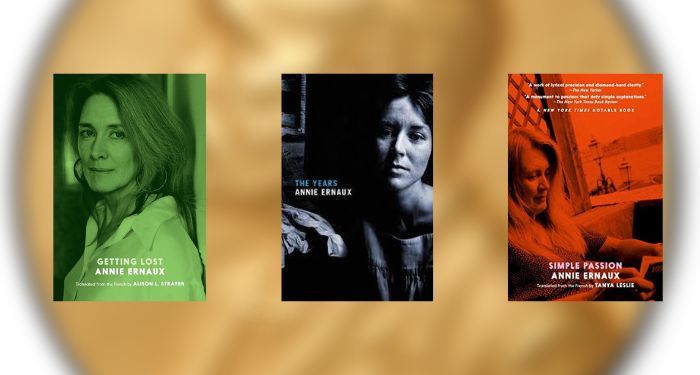The Swedish Academy has awarded the 2022 Nobel Prize in Literature to French writer Annie Ernaux for “the courage and clinical acuity with which she uncovers the roots, estrangements, and collective restraints of personal memory.” Ernaux is the author of over thirty works of fiction and memoir and is considered by many to be France’s most important literary voice. At the time of Thursday’s press conference the Nobel committee said they had not yet been able to reach Ernaux on the phone.
Born in 1940, Ernaux grew up in the small town of Yvetot in Normandy, where her parents had a combined grocery store and café. Chair of the Nobel Committee, Anders Olsson, stated during Thursday’s press conference “Her setting was poor but ambitious, with parents who had pulled themselves up from proletarian survival to a bourgeois life, where the memories of beaten earth floors never disappeared but where politics was seldom broached. In her writing, Ernaux consistently and from different angles, examines a life marked by strong disparities regarding gender, language, and class.”
Her works of fiction pull deeply from her own life and experiences, so much so that she has declared herself an “ethnologist of herself” rather than a writer of fiction. Ernaux has also said that writing is a political act and she uses language “as a knife” to “tear apart the veils of imagination” and open readers to a wider recognition of social inequality.
Ernaux won the Prix Renaudot for A Man’s Place and the Marguerite Yourcenar Prize for her body of work. She received the International Strega Prize, the Prix Formentor, the French-American Translation Prize, and the Warwick Prize for Women in Translation for The Years, which was also shortlisted for the Man Booker International Prize. Her most recent book is the memoir Getting Lost, translated by Alison L. Strayer, out this month.
Olsson went on to say that, “Annie Ernaux manifestly believes in the liberating force of writing. Her work is uncompromising and written in plain language, scraped clean. And when she with great courage and clinical acuity reveals the agony of the experience of class, describing shame, humiliation, jealousy or inability to see who you are, she has achieved something admirable and enduring.”
The committee cited Ernaux’s Happening as a masterpiece and it feels particularly relevant to today’s times as it details the young narrator’s illegal abortion. Olsson was asked during the press conference by a member of the press from Nordic Chinese Times if the choice of Ernaux during this time was a “message [they] wished to deliver.” Olsson replied, We concentrate on literature and literary quality and we don’t have any more message to deliver to the world but it’s also very important to us that the laureate has universal consequence in her work, that it can reach everyone. And in that respect, I think the message is that this is literature for everyone.”
In recent years, the Swedish Academy has been public in its desires to move the award away from its current “Euro-centric” and “male-dominated” approach. The Nobel Prize in Literature has now been awarded to 17 women since 1901, with eight of those awards in the 21st century, most recently American poet Louise Glück in 2020, Polish author Olga Tokarczuk in 2018 although she was given the award in 2019, and Belarusian journalist Svetlana Alexievich in 2015. While an improvement over the previous century, male writers are still more likely to win the award.
The award has continued to be dominated by European writers. At Thursday’s press conference, Olsson was asked by a member of the Associated Press about the possible disappointment from some parts of the world that the committee had chosen another European laureate. In response, he offered that the committee has “many different criteria and you cannot satisfy all of them. We can only be sure that we strive for literary quality. Every year you have to satisfy that criteria. Last year we gave the prize to a non-European writer, Abdulrazak Gurnah, this year we give the prize to a woman. . . We try to broaden the scope of the Nobel Prize but our focus must be literary quality first of all.”
You can learn more about previous winners in our archives:
Novelist Abdulrazak Gurnah Wins 2022 Nobel Prize in Literature
Poet Louise Glück Wins 2020 Nobel Prize in Literature
2018 and 2019 Nobel Prize Literature Winners Announced
